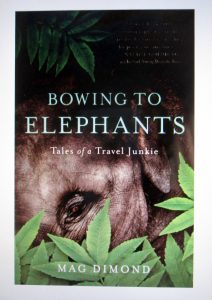The difference between an autobiography and a memoir, I used to tell my students, has everything to do with a couple of prepositions: of and from.
An autobiography is the story of a life — usually the life of a rich and famous person — written by that person (or his or her ghost writer). Whereas a memoir is a story (or stories/memories) from the life of a more-or-less ordinary person.
A famous person can begin her autobiography at the very beginning (I was born in the dead of winter in a one-room cabin with no heat or running water in the hills of Appalachia, let’s say), and the reader will stick with it because all the while in the back of that reader’s mind there’ll be the nagging question: How in the world did this person ever get to be rich and famous?!
The memoirist, on the other hand, has a bigger challenge. Without this built-in interest in the the writer’s life and rise to fame, the memoirist’s stories themselves must move the reader along and maintain the reader’s interest. Do these stories have universality? Do they ring true to the reader’s lived experience? Do they embrace and enrich the reader? Are they written with care and skill and ego-less love?
The memoir Bowing to Elephants, just published by She Writes Press, and written by Mag Dimond (74), ticks all these boxes for me. It is a stunning book, which I read slowly this past week and savored. Every sentence, every paragraph is carefully sculpted. I especially loved the book’s zigzag structure, the way Dimond takes her reader with her, back and forth in time, here and there in the world, up and down in emotions.
Along the way she observes everything in minute detail, so that we not only can see but we can hear and smell and taste it all. “A writer is one on whom nothing is lost,” it has long been said. Nothing is lost on Mag Dimond.
The subtitle of her book is Tales of a Travel Junkie, but to me the book is far more than a travel memoir. Yes, her stories take us from Italy to France, Burma to Bhutan, India to Kenya, Vietnam to Cambodia, then back again to her beloved hometown of San Francisco. But they go deeper than most tourists and even travel writers dare to go. In every place, they go to the heart, beginning by inquiring of her own.
As she writes, for example, about her first safari in Kenya:
“The words of a close friend, ‘It will transform your life,’ came true. I fell in love with the infinite landscape, the warm and generous people, the lions, rhinos, impala, and the cheetahs. But mostly I fell for the elephant, the highly evolved ancient animal of epic form whose heart and gentleness broke me wide open. … I was convinced I had discovered something I had been searching for all my life.”
Although Mag Dimond and I both spent years living and teaching writing in Taos, New Mexico, our paths never crossed. I have yet to meet her in person. And although our early lives were quite dissimilar (she comes from wealth, I do not; I had a loving and caring mother, she did not; she was an only child, I was not), after reading her stories – and backstories – I feel as if we’re now close friends.
This is what a carefully, thoughtfully crafted memoir does, I strongly believe: It embraces the reader. It says, We have a great deal in common. We are equals, and we’re in this thing called life on earth together.
Every woman who has been a daughter – or a lover or a wife or mother or grandmother or traveler or seeker – will be able to relate on a deep level to Mag Dimond’s story because she has written our story. Not just her own.
And everyone, man or woman, who is considering writing their own memoir would be wise to not just read but actually study Mag Dimond’s book. Because this is how it’s done.
~ ~ ~
For more information, be sure to visit www.magdimond.com. And for my Taos friends: Author Mag Dimond will be doing a reading and book signing at SOMOS on Civic Plaza Drive on Friday, November 1st at 7 pm. I’ll be there in spirit.

